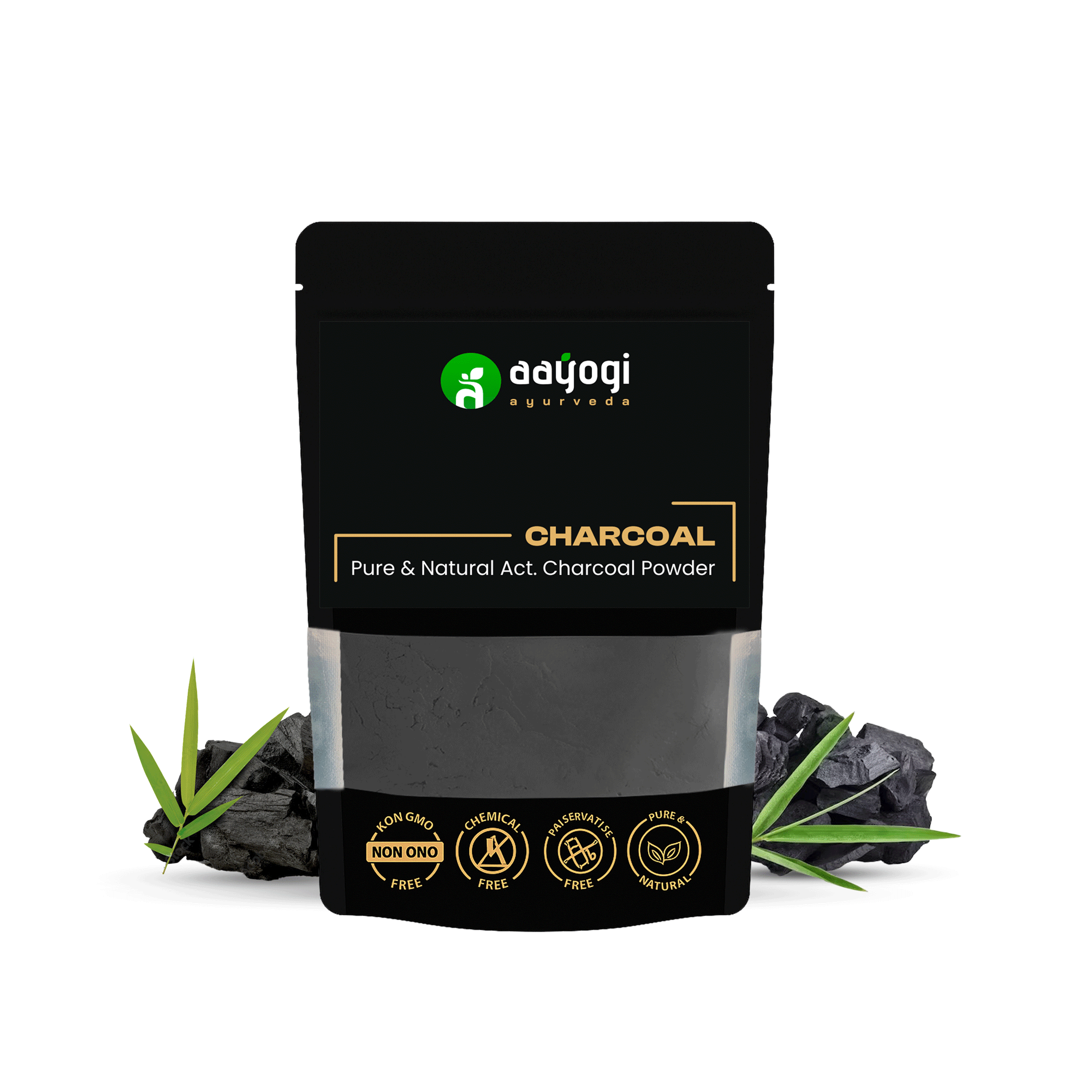
Detoxifying Activated Charcoal Powder – 100 gm | Deep Pore Cleanser & Skin Purifier | Aayogi Ayurveda - 100gm (Pack of 1)
₹. 197.00
Speciality of Activated Charcoal Powder
FAQs
Is activated charcoal a natural source?
Activated charcoal is a natural source extracted from coconut shells, bamboo, or wood. The material is heated to make it porous, hence improving its absorbent capabilities.
What is the difference between regular charcoal and activated charcoal?
The primary use of common charcoal is as a cooking or heating fuel. For activated charcoal, though, a special activation process yields a highly porous product structure, making it so effective in absorbing toxins and other impurities.
How many times can I apply the charcoal to my face per day?
It should be used once or twice a week for most skin types, as overuse will lead to dryness or irritation, especially on sensitive or dry skin.
Does activated charcoal irritate the skin?
Although activated charcoal is generally gentle, most people may find dryness or irritation on their skins, especially when it is too frequently used. In this case, you may require a patch test, thus limiting its usage to not irritate the skin.
Activated charcoal can minimize large pores?
Activated charcoal cleans and tightens pores, but it does not reduce pore size. It actually reduces the appearance of pores by removing dirt and excess oil from the pores.
How long does activated charcoal powder last once opened?
Activated charcoal powder has a shelf life of many years if stored in an airtight container. Its potency will decrease with time, especially if exposed to moisture or air.
Can activated charcoal help with dark spots or pigmentation?
Activated charcoal is really good at clearing out impurities, but it's not particularly targeting dark spots or hyperpigmentation. But indirectly, by purifying and keeping your skin clear, it's helping you maintain a complexion.
Is activated charcoal biodegradable?
Yes, the activated charcoal is biodegradable. They are derived from natural materials like coconut shells, wood, or bamboo. Thus, it can break down naturally.
















